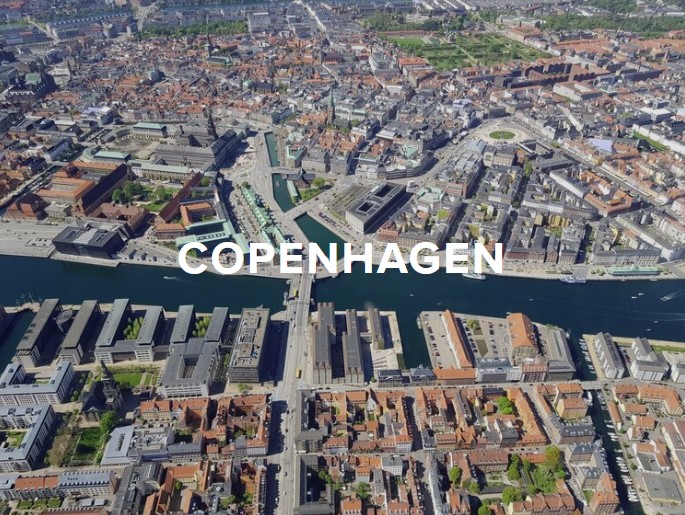The first of our Screenings and Conversations took place on 6th Jan, drawing inspiration from Copenhagen and the Life Sized City film presented by Mikael Colville-Anderson. This is a brief blog noting some of the issues which the film raised, and some of the discussion which followed.
The film looked at a number of factors that have shaped the city:- movement, the relationship between citizens and administration, and the failures of the development process.
Copenhagen is well known as a city where cycling dominates local transport – far more journeys are made by bike than by car, and there are 40,000 cargo bikes in the city, showing the broad use of bikes for a range of purposes. Two interesting points were made – people cycle because it’s quicker, not for health or to save the planet (a point proved by testing a suburb-to-centre journey – eighteen minutes by bike, twenty-four by car) and cycle infrastructure was built by the city because it was cheap – the entire infrastructure (safe routes linking the centre with the periphery) cost less than a handful of kilometres of ring road.
The film looked at the process of planning and development – how having a mayor allowed bold decisions to be implemented but also how good democratic process ensured grass-roots ideas get heard and form the basis for policy. And they don’t always get it right – their “finger” plan for Transport Oriented Development has resulted in a major development which has failed, where economics of building transport infrastructure have driven the building of a huge shopping mall – now largely dead, and surrounded by only partly built and occupied development, many years behind programme.
Children and young people, and their role in the city, was touched upon – the film visits a school where the kids get to explore the building of furniture using a clever kit of bits, and explore how they can influence their surroundings. When asked what they like about their home city – this is where Colville-Anderson lives, and where his Copenhagenize design practice operates – his kids both say it’s how they can cycle around the place easily and safely. They have mobility and with it, independence.
Copenhagen is regularly in the top ten global “most liveable cities” but this popularity brings problems – it’s an expensive place to live, and marginalises many. The Christiania project was explored as a response – raising questions about ownership and finance; how can collective ownership work in an area of high demand and high land value?
There was wide-ranging discussion, with views from inside the council and one or two other major York bodies and from people involved with YoCo as well as interested residents of York and elsewhere. There was a mix of frustration – York isn’t Copenhagen either in terms of its current reality or its apparent current capacity for positive change – but as many pointed out, we have opportunities in York as a result of the various bodies active in the city and some valuable work to date. Copenhagen was described as imperfect but “work in progress” – a question for York is “are we in progress, and if so in what direction”? And fundamentally – if we’re to build city-wide citizen engagement to push for bold future vision, how do we do this?
There was discussion around ownership – or lack of it – and how that shaped places; what was the difference between mutual / co-ownership and no-ownership, and how might this guide thinking around YoCo’s proposals? How do you avoid what one participant called “developmentitis” – the perils of development for its own economic purposes, and the potential of that to fail to fit the needs of people, and to hence fail to take on any life? What makes good public space and what leaves dead routes linking dead places? And for York Central – given the council’s limited leverage over the shape of development beyond the constraints of the planning process, how do the people of York exercise some control?
Our next screening and conversation will visit Milan on 13th January. Before then, please email or tweet us your comments to give us a starting point to build upon, and some key points to carry into the fourth session and our focus on York Central.
